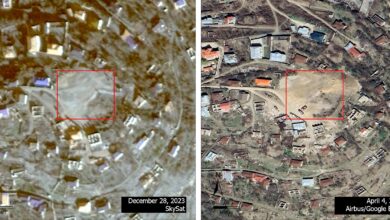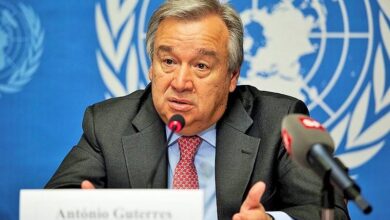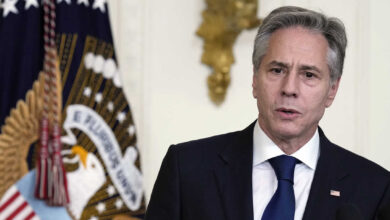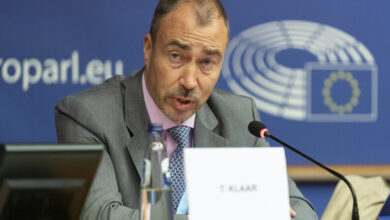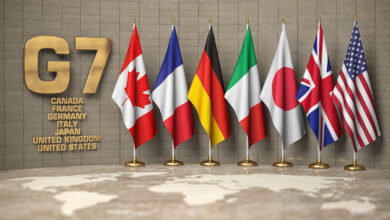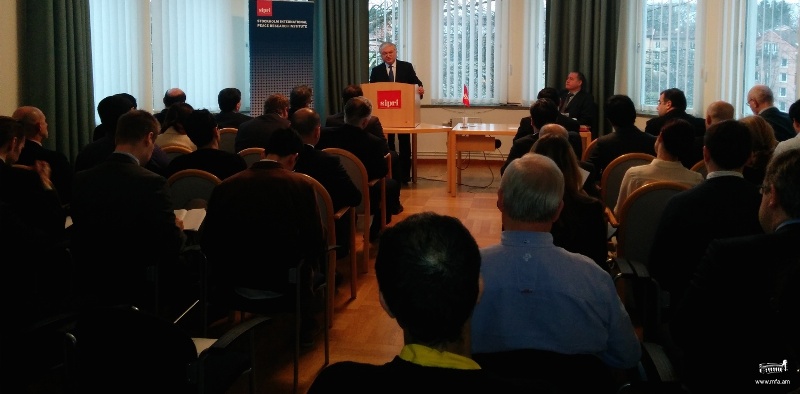
On November 25 Armenian Foreign Minister Edward Nalbandian delivered an address on the foreign policy of Armenia at Stockholm International Peace Research Institute.
Representatives of state agencies of Sweden, diplomatic missions, research centres and universities, political analysts attended the event. Minister Nalbandian answered numerous questions raised by the attendees regarding the foreign policy of Armenia, Armenia’s approaches on regional and international issues.
Referring to the settlement of the Nagorno-Karabakh issue, Minister Nalbandian mentioned, that Armenia shares OSCE Minsk Group Co-Chairs states’ approach, that there is no alternative to peaceful resolution.
Edwadrd Nalbandian said, in part:
“The more the international community appeals to the sides of the conflict to prepare populations for peace and not for war, the more we hear from the Azerbaijani leadership increasing bellicose warmongering, anti-Armenian hate-speech, persecution of those civil society activists who pursue confidence building and reconciliation projects. The more the international community is calling on the sides to withdraw snipers from the line of contact and to create a mechanism of investigation of ceasefire violations, the more sniper shootings, provocative incidents, subversive acts are coming from the Azerbaijani side, resulting in numerous casualties.
The more oil and gas revenues are enriching the Azerbaijani budget, the more weaponry and armament are purchased by Baku. Over the last decade, Azerbaijan’s military budget has plummeted from 163 million to 3.6 billion USD, more than 20 times, and Baku now is bragging that during the upcoming year the military budget will increase by 27% to reach 4.8 billion USD. The disproportionate military spending and acquisition of excess armaments by Azerbaijan poses a serious threat to regional and international stability and security.
Baku rejected all versions of the Basic Principles of the settlement of the Nagorno-Karabakh conflict proposed by the Co-Chairs of the Minsk Group, including those presented at the Saint-Petersburg (June 2010), Astrakhan (October 2010), Sochi (March 2011) and the last one in Kazan (June 2011) summits. The Kazan summit was followed by almost 2 years of stagnation in the peace process. During this period Azerbaijan increased ceasefire violations and provocative actions along the Line of Contact between Nagorno-Karabakh and Azerbaijan and along the border between Armenia and Azerbaijan.
But the most notorious case was the pardoning and glorification of Azerbaijani officer Safarov who beheaded a sleeping Armenian officer with an axe while both were participating in a NATO course in Budapest.
When in Vienna last November, thanks to the efforts of the Co-Chairs, top level meeting between the Presidents of Armenia and Azerbaijan resumed some time after the notorious “Safarov case”, there was some hope that the negotiations could move forward. Unfortunately, those expectations were not met. Azerbaijan did everything to undermine the situation in the conflict zone.
The Azerbaijani side made several subversive incursions, which resulted in many deaths, drastically raising the tension on the ground.
An Armenian villager who had mistakenly wandered into the territory of Azerbaijan was arrested, humiliated in front of cameras, a tactic used by notorious terrorist organizations, and was found dead the following day.
Inside Azerbaijan the harassment of eminent journalists, civil society activists, representatives of intelligentsia is an expression of “witch-hunt,” as these dissidents are represented as “Armenian spies.” Thus the external “enemy’s image” is used to demonize, discredit the opponents of the Baku regime.
This all seriously has endangered the negotiation process.
During the last three months the Co-Chair countries, first the President of Russia in Sochi, then the Secretary of State of the USA in Newport, and then the President of France in Paris, with participation of the Heads of States of Armenia and Azerbaijan, organized Summit meetings to reduce the tensions and prevent further escalation of the situation.
Immediately after the Paris meeting the leadership of Azerbaijan raised another wave of anti-Armenian provocative rhetoric, and the Defense Minister of that country claimed again that his country would solve the Nagorno-Karabakh issue through military means.
The recent shooting down by the Azerbaijani armed forces of the helicopter of the Nagorno-Karabakh Defense Army during a training flight, which took the lives of three young servicemen, is Baku’s latest criminal provocation. The Azerbaijani army for almost ten days continuously kept the area of the helicopter shooting under intensive fire, hindering rescue teams, the OSCE, International Committee of the Red Cross representatives to approach that site and evacuate the bodies of killed crew members.
Facing this yet another gross violation of international humanitarian law by Azerbaijan, Nagorno-Karabakh Defense Army had to undertake a special operation to evacuate the body of one of the crew members, the remains of two pilots of downed helicopter.
Baku continues to oppose itself to the international community which was once again demonstrated by its reaction to the statement of the OSCE Minsk Group Co-Chairs on the helicopter shooting. Azerbaijan is clearly losing the sense of reality and day by day is deepening the gap between itself and the civilized world.
Baku is not only ignoring the appeals of the OSCE Minsk Group Co-Chair countries, the international community on non-use of force, consolidation of ceasefire, creation of a mechanism of investigation of incidents on the line of contact, implementation of confidence-building measures, but is acting contrary to them bearing full responsibility for the escalation of the situation.
All those facts demonstrate that Azerbaijan has become a serious threat to the security and stability in the South Caucasus.
We fully agree with the Minsk Group Co-Chairs that the use of military force can not resolve the conflict. The sooner the Azerbaijani leadership understands this, the more the negotiation process could bring results for the settlement of the Nagorno-Karabakh conflict.”



